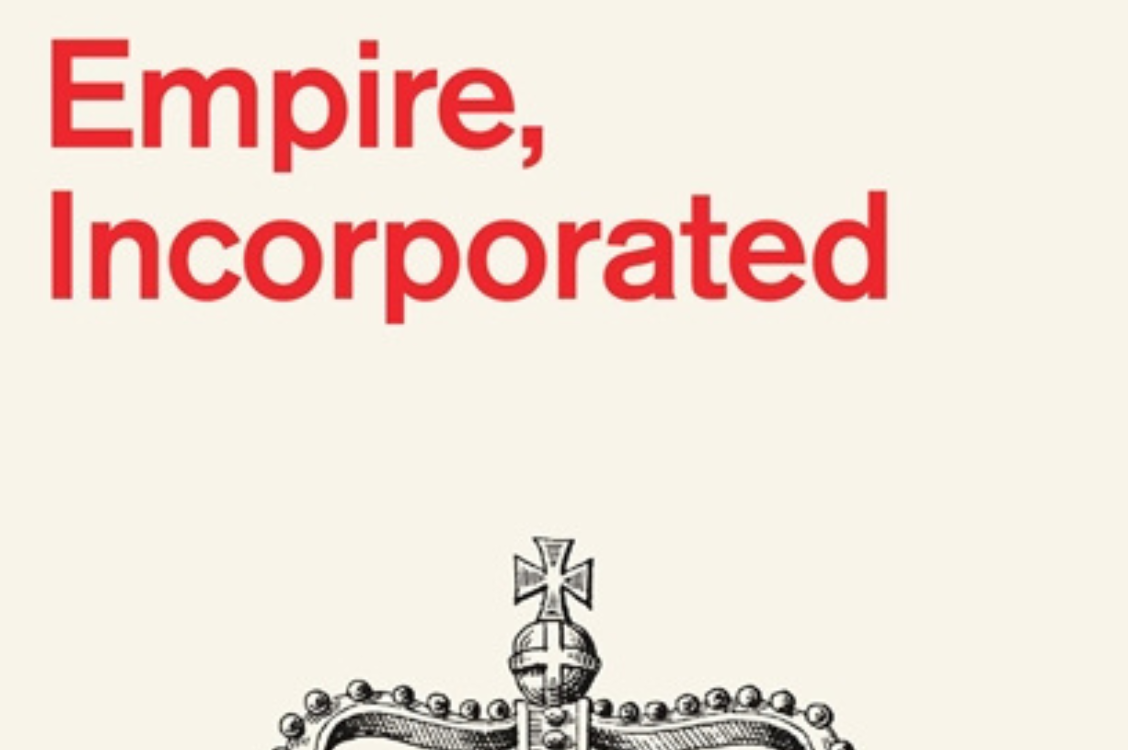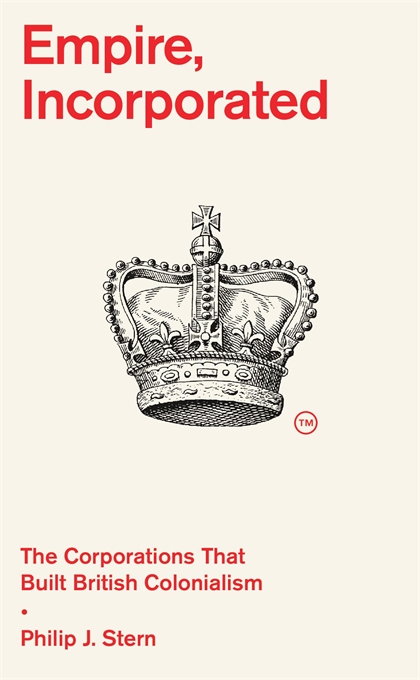
- Free Article: No
- Contents Category: History
- Review Article: Yes
- Article Title: The state as sleeping partner
- Article Subtitle: Imperialism via the joint-stock company
- Online Only: No
- Custom Highlight Text:
A senior public servant writes that the history of corporations shows that there are ‘some things which a Government cannot do officially, and which are best accomplished when the people take the lead, while the State lends its support, remaining in the background until it is required to interfere’. This is ‘almost forgotten now in these days of international law, of diplomats, and of quick intelligence sent to headquarters by wire from the uttermost parts of the earth’.
- Featured Image (400px * 250px):

- Alt Tag (Featured Image): Clinton Fernandes reviews 'Empire, Incorporated: The corporations that built British colonialism' by Philip J. Stern
- Book 1 Title: Empire, Incorporated
- Book 1 Subtitle: The corporations that built British colonialism
- Book 1 Biblio: Harvard University Press, US$39.95, 399 pp
- Book 1 Cover Small (400 x 600):

- Book 1 Cover (800 x 1200):

Empire, Incorporated is both a history of the modern joint-stock corporation and as an important reframing of the British Empire, because it shows how that empire was built by investors, entrepreneurs, and landowners, not just by politicians. Stern is well placed to undertake his study. His first book (The Company-State, 2011) examined the business model of the British East India Company from its founding in 1600 until 1757, when it consolidated its position as the ruler of Bengal after the Battle of Plassey. As its title suggested, it was a commercial enterprise with the powers of a government. It waged wars, created and enforced laws, collected taxes, engaged in diplomacy, and made jurisdictional claims over land and sea.
With Empire, Incorporated, Stern expands his horizons to the full gamut of British ‘company-states’, from English charter companies in Ireland and Australia to the Western Hemisphere. He shows how joint-stock corporations assembled and coordinated resources to deliver riches to metropolitan investors. They were vital players in the centuries of global confrontation between the West and the rest of the world, described variously as imperialism versus anti-colonialism, developed versus developing countries, liberal democracy versus the rest, core versus periphery, and the North–South conflict.
As others before Stern have shown, the advantage of the joint-stock corporation was that it could draw funds from a wide array of people while tolerating risk and loss. This entity had an independent legal personality that could live forever and accumulate rights, property and immunities unavailable to human beings. It had rights but few obligations; transferable shares; a separation between owners and managers; and limited liability. Stern examines its similarity to organisations that preceded it in the late medieval world – not just commercial institutions but also civic ones, like universities and municipalities, and religious ones. He shows the philosophical connection to the concept of a universal Church incorporated in the body (‘corpus’) of Christ. Like the Church, the business corporation consists of individuals and is also an entity in its own right. Medieval jurists recognised that this form of ‘associational life’ could be used to legitimise the sovereignty of the Crown, which could thus be conceived of as possessing two bodies: the natural, mortal body of the monarch; and the corporate and permanent body of the monarchy. Unlike kings and governments, however, venture colonial companies had no dignity to violate and no national flag to dishonour. They could make diplomatic compromises that were sometimes outside the scope of governments, especially great powers, whose prestige and credibility might otherwise result in a crushing display of force or a refusal to back down.
Stern’s analysis reveals that today’s tech titans – from Alphabet to Amazon and Microsoft to Meta – act like states in regulating and administering their territories. Of course, they lack the direct coercive ability of the British East India Company, which had an armed force of more than 200,000 troops – twice the size of the United Kingdom’s. But, as we have seen, they rely on the United States and some other governments to negotiate and enforce international trade and investment agreements that have given them global reach and effective control over food, finance, communications, entertainment and much more. Empire, Incorporated calls to mind the observation of the late structural macroeconomist, Lance Taylor: ‘In the long run, there are no laissez-faire transitions to modern economic growth. The state has always intervened to create a capitalist class, and then it has to regulate the capitalist class, and then the state has to worry about being taken over by the capitalist class, but the state has always been there.’
Just how to deal with multinational corporations is a critical issue in today’s age of environmental upheaval, labour insecurity, global supply chains, and emerging technologies such as machine learning or artificial intelligence. Stern’s study shows how closely integrated these public–private partnerships have been over time. It offers a deep analysis of the structure of the modern corporation and the ways it has been linked with political power to increase its economic heft.


Comments powered by CComment